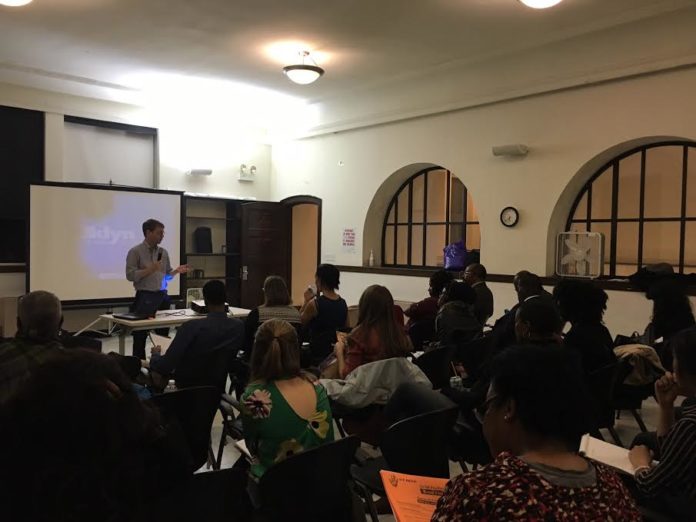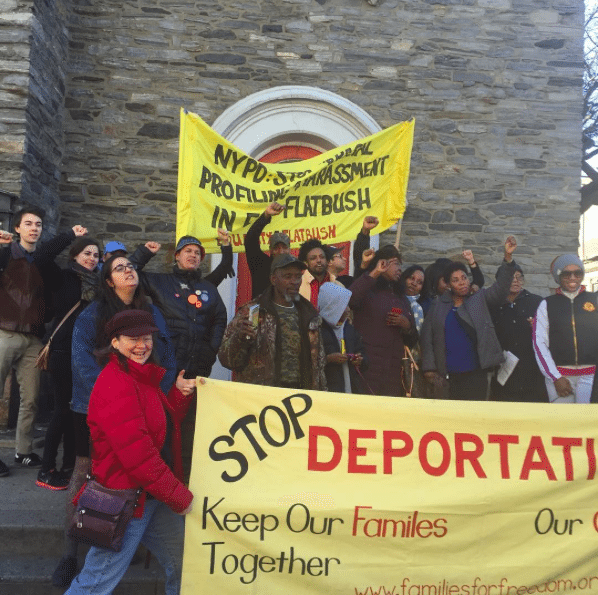
“With TPS, it’s like you live under fear,” thirty-something aspiring nurse Michaëlle explained. “You don’t know what’s going to happen. I live with stress because of that.”
Michaëlle’s situation just got worse on Apr. 20, when Homeland Security Secretary John Kelly declared that Temporary Protected Status (TPS) for 50,000 Haitian people living in the U.S. would be over.
After the 2010 earthquake in Haiti, President Obama granted temporary relief status to undocumented Haitians who had arrived in the U.S. before 2011. Given the slow pace of recovery efforts and subsequent disasters – notably the cholera epidemic that has killed over 10,000 and counting, and Hurricane Matthew that hit Haiti last October – TPS has been extended several times. The latest TPS is set to expire on Jul. 22, 2017.
In essence, the Trump administration’s policy would amount to kicking out 50,000 people who have, despite their fear, put their faith in the U.S. government to legalize, like fifty-something child care provider Wideline. She recalls that “[We were told to] tell all fellow Haitians they don’t need to fear because they are going to give Haitians who are illegal in this country papers so they can work.”
Wideline specifically acknowledged fear that TPS would become, in effect, a pipeline to deportation: “people spread fear, arguing that the papers were so that the U.S. government can identify Haitians living in the country in order to deport them. And this is why some people didn’t do it.”
Given the switch in administration, TPS, like registering for DACA for many undocumented Mexican families, has meant that it places a target on people’s heads. TPS, like DACA, makes people visible to the State and thus more “deportable,” like undocumented rights activist Jeanette Vizguerra, who sought sanctuary in a Denver church this February.

While this particular threat to the Haitian American community has gone largely unreported, it represents a betrayal for some. Unlike Mexican Americans, specifically targeted by then-candidate Trump, Haitian Americans, particularly in Florida, were actively courted by Republican strategists and Breitbart News.
In 2000, the fate of the free world hung on 537 dimpled chads in the Sunshine State, home to an estimated 424,000 people of Haitian descent per the 2010 Census. This number is low not only because of undocumented but because people have to self-select as “Haitian.”
Many Haitian community leaders and organizations were solid and early backers of Obama, the country’s first African American president. Compared to the Cuban community in South Florida, the Haitian Diaspora wields less political power because of the lack of dual citizenship. As the first and only slave revolt to beget a free nation, Haiti has long symbolized Black pride. As scholars such as Nina Glick Schiller and Georges Fouron and others argue, the Haitian Diaspora keeps their Haitian citizenship while sending remittances, representing a third of the country’s Gross Domestic Product.
Following the earthquake, organizations within the Haitian Diaspora such as the Haitian Congress to Fortify Haiti pushed for both TPS in the U.S. and dual citizenship in Haiti. Both were won in 2011.
Why would this solid Democratic voting bloc help push the needle towards a candidate who openly expressed hostility toward immigrants?
While the Haitian community is large and diverse, and therefore complex, an important factor was the role the Clintons – the “king and queen of Haiti” – played following the earthquake.
On Apr. 11, the United Nations announced the end of its controversial military force. MINUSTAH belatedly and partially apologized for infecting Haiti with cholera, but it was too little, too late. And the UN is still attempting to dodge responsibility for a rash of sexual assault cases. The Clintons were involved in no-bid contracts for shoddy homes, high-end tourism, an apparel factory outside of Port-au-Prince, and gold prospecting.
Some in the Haitian community might have forgiven this disaster capitalism if Haiti was “built back better” as Bill Clinton promised.
It wasn’t.
However, at least in the capital of Port-au-Prince, an argument can be made for at least some economic institutions and physical infrastructure being rebuilt. Much of this is an unrecognized initiative by Haitian people themselves, such as in Canaan, an informal settlement created to house the displaced after the earthquake.
Following Trump’s election, proponents for ending TPS suggest that Haiti has recovered enough to support the return of these undocumented.
It seems that yet again when officials speak of Haiti, they mean Port-au-Prince, where recovery efforts have been targeted. But Port-au-Prince is not Haiti. And Haitian TPS holders have origins all over the country, including the Grand’Anse that is still reeling from Hurricane Matthew. But people living outside of the capital are moun andeyò, “outsiders.” As the lackluster international response suggested, these people who live far from the NGO offices and high-end hotels don’t count. Their lives don’t matter.
Like many community leaders here legally, people like Michaëlle who don’t have legal status define both as “home.” Professors Shannon Gleeson and Kate Griffith at Cornell University led a study of TPS holders in NYC. This research documents that Haitian TPS holders tend to have significant ties to this country, not the least having had children and raising them here.
Of the 30 respondents in the Cornell study so far, most report being in the U.S. for decades, particularly beginning in the late 1980s, 1990s and early 2000s. Being Haitian in the 1980s was to endure ridicule and stigma, as Haiti was incorrectly blamed for AIDS. U.S. actions like the destruction of local pigs, rural bank accounts, as well as free-trade policies it imposed destroyed Haiti’s economy, triggering this migration in the first place. These actions benefitted large U.S. agribusiness and other corporations.
The people in the Cornell study tend to have children here, and some report having left children back in Haiti. Many people report having worked in the undocumented labor force, but after receiving TPS they could apply for better paying jobs, albeit still below minimum wage. But these jobs require that their TPS be current, which costs $400 every eighteen months.
Ending TPS would cause a deep wound in the Haitian community, ripping apart families, and punishing people who endure sub-minimum wage jobs because they believed the government would be fair.
Especially because of the causes of the migration – not to mention exploitative working conditions –benefit U.S. companies in the first place, justice demands that the U.S. own its accountability to these temporary status holders.
But TPS also affirms humanity and human decency. Michaëlle reported “I feel grateful because I am in this country. I have the ability to go to school and to work.”
Michaëlle, like other TPS holders from Haiti, Honduras, and El Salvador, contribute to this country through their labor and the pursuit of their dreams.
The least we can do is act, before the final ruling on TPS is handed down. There is a petition calling for Secretary Kelly to renew TPS.
The original version of this article was published in the Huffington Post. Darlene Dubuisson is a PhD Candidate in the joint Applied Anthropology program at Columbia University. Her research interests include black intellectualism, academic culture, diaspora, and transnationalism. Mark Schuller is Associate Professor at Northern Illinois University and affiliate at the State University of Haiti. Schuller has 30 scholarly publications on NGOs, globalization, disasters, and gender in Haiti, and wrote or co-edited seven books.









